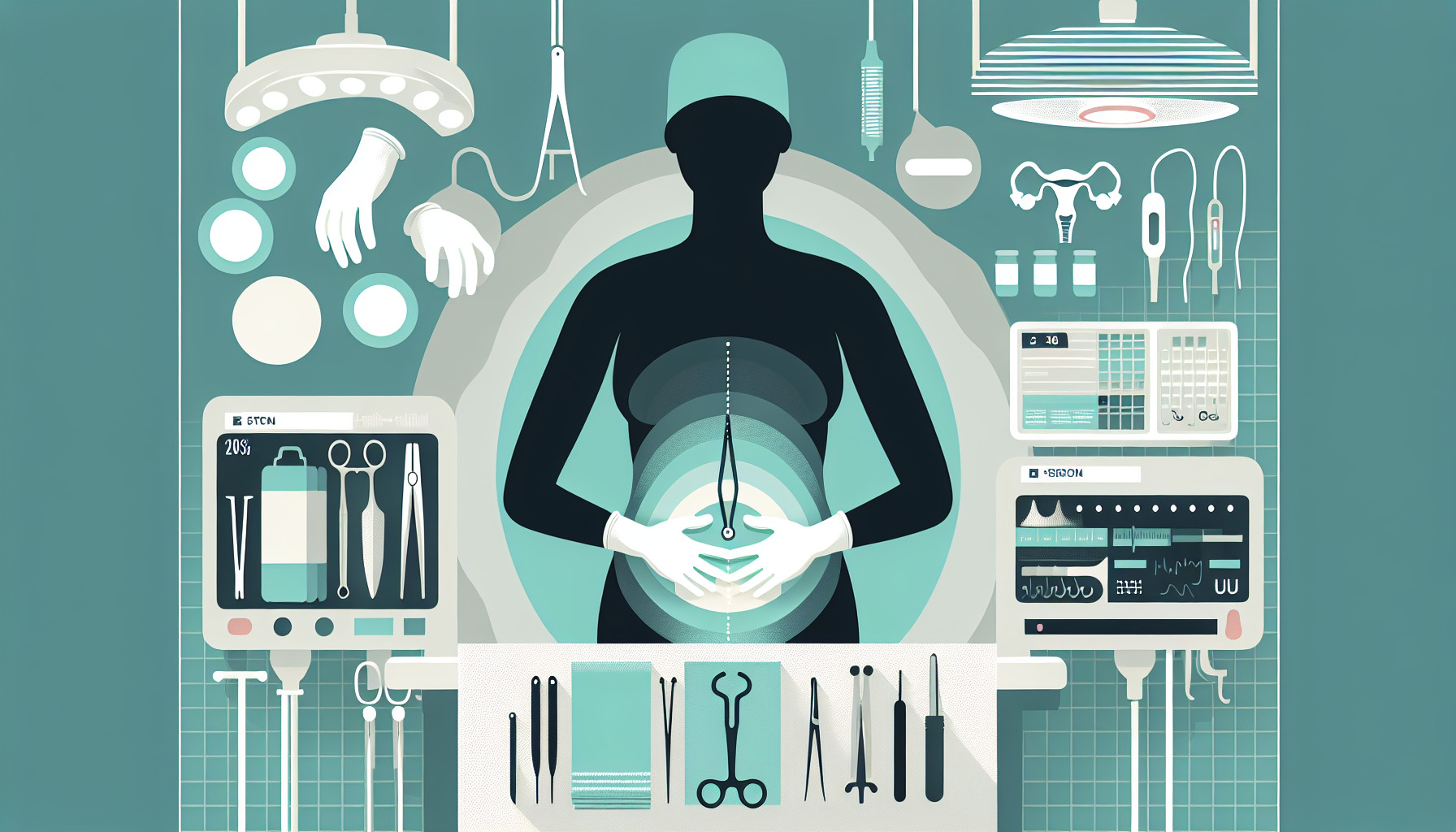Our Summary
A hysterectomy is a common surgical procedure where a woman’s uterus is removed. It can be done in three ways: through the vagina, the abdomen, or using a laparoscope. Like any surgery, it can result in various complications. These can involve damage to parts of the body like the bladder, intestines, rectum, and nervous structures. Other complications can include sexual dysfunction, the separation of the vaginal cuff (the top part of the vagina that’s closed off after a hysterectomy), and loss of bladder control. The paper suggests that doctors who perform hysterectomies or treat patients who have had the procedure should know about these possible complications and how to reduce their risk. It’s also important for doctors to tell their patients about these potential complications, as they can affect their lifestyle and comfort.
FAQs
- What are the different ways a hysterectomy can be performed?
- What are some potential complications of a hysterectomy?
- How should doctors manage the risks of complications associated with hysterectomies?
Doctor’s Tip
A helpful tip a doctor might tell a patient about hysterectomy is to follow post-operative care instructions carefully to reduce the risk of complications and promote healing. This may include avoiding heavy lifting, following a proper diet, taking prescribed medications, and attending follow-up appointments. It’s also important to communicate any unusual symptoms or concerns to your healthcare provider promptly. Additionally, discussing any potential long-term effects of the surgery, such as menopause or changes in sexual function, can help the patient better prepare and adjust to these changes.
Suitable For
Patients who may be recommended for a hysterectomy include those with:
- Severe, persistent pelvic pain that does not respond to other treatments
- Abnormal vaginal bleeding that does not respond to other treatments
- Uterine fibroids that are causing symptoms such as heavy menstrual bleeding, pelvic pain, or pressure on nearby organs
- Endometriosis that is causing severe pain or affecting fertility
- Uterine prolapse, where the uterus has descended into the vaginal canal
- Gynecologic cancer, such as cervical, ovarian, or uterine cancer
- Chronic pelvic inflammatory disease or pelvic inflammatory disease that does not respond to other treatments
It is important for patients to have a thorough discussion with their healthcare provider about the risks and benefits of a hysterectomy, as well as alternative treatment options. Additionally, patients should be informed about the potential complications of the surgery and how to reduce their risk.
Timeline
Before the hysterectomy:
- Patient meets with their doctor to discuss the reasons for the surgery and any alternative treatments
- Patient undergoes pre-operative tests and evaluations to ensure they are healthy enough for surgery
- Patient may need to stop taking certain medications or adjust their diet before the procedure
- Patient is given instructions on how to prepare for surgery, including fasting before the procedure
- Patient may need to stay in the hospital for a few days after the surgery for monitoring and recovery
After the hysterectomy:
- Patient may experience pain, fatigue, and discomfort in the days following the surgery
- Patient will need to follow post-operative instructions, including taking medications as prescribed, eating a healthy diet, and avoiding strenuous activities
- Patient may need to attend follow-up appointments with their doctor to monitor their healing and recovery
- Patient may experience changes in their hormone levels and menstrual cycle, depending on the type of hysterectomy performed
- Patient may need to make lifestyle adjustments to manage any long-term effects of the surgery, such as menopausal symptoms or changes in sexual function.
What to Ask Your Doctor
Some questions a patient should ask their doctor about hysterectomy include:
- What are the reasons for recommending a hysterectomy in my case?
- What are the different types of hysterectomy procedures and which one is recommended for me?
- What are the potential risks and complications associated with a hysterectomy?
- How long will the recovery process take and what can I expect during that time?
- Will a hysterectomy affect my hormonal balance and menopausal symptoms?
- How will a hysterectomy affect my sexual function and intimacy?
- Are there alternative treatment options to consider before undergoing a hysterectomy?
- Will I still need regular gynecological check-ups after a hysterectomy?
- How will a hysterectomy impact my future fertility and pregnancy options?
- What lifestyle changes or precautions should I take after a hysterectomy to promote healing and prevent complications?
Reference
Authors: Ramdhan RC, Loukas M, Tubbs RS. Journal: Clin Anat. 2017 Oct;30(7):946-952. doi: 10.1002/ca.22962. Epub 2017 Aug 22. PMID: 28762535
